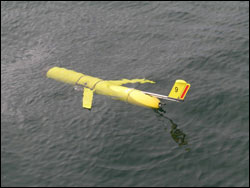Scientists from NASA and Columbia University, New York, have used computer modeling to successfully reproduce an abrupt climate change that took place 8,200 years ago. At that time, the beginning of the current warm period, climate changes were caused by a massive flood of freshwater into the North Atlantic Ocean.
This work is the first to consistently recreate the event by computer modeling, and the first time that the model results have been confirmed by comparison to the climate rec
Since its launch in 2002, Envisat, the world’s largest and most sophisticated satellite ever built, has been providing scientists and operational users with invaluable data for global monitoring and forecasting – and the future looks even brighter.
“The Envisat mission has reached its full maturity with the services provided by the satellite now well established, and the scientific results based on its data being increasing published,” Envisat Mission Manager Henri Laur said. (For m
A Purdue University researcher and his team have used improved satellite imaging and powerful computer modeling to more accurately forecast the likelihood and intensity of storms and tornados.
The key to the new weather prediction model is its more precise simulation of the amount of moisture surface vegetation is releasing into the upper atmosphere to affect the weather conditions, said Dev Niyogi (pronounced Dave Knee-yoo-gee), an assistant professor of agronomy and earth and at
Mangroves, the backbone of the tropical ocean coastlines, are far more important to the global ocean’s biosphere than previously thought. And while the foul-smelling muddy forests may not have the scientific allure of tropical reefs or rain forests, a team of researchers has noted that the woody coastline- dwelling plants provide more than 10 percent of essential dissolved organic carbon that is supplied to the global ocean from land, according to a report published 21 February in Global Biogeo
While biologists sort out what levels of noise go unnoticed, are annoying or cause harm to marine mammals, physical oceanographer Jeff Nystuen is giving scientists and managers a way to sift through and identify the sounds present in various marine ecosystems.
Nystuen, from the University of Washington’s Applied Physics Laboratory, presented his latest findings this week at the Ocean Sciences Meeting in Honolulu.
Knowing what sound is already there is needed when tr

First passive recordings from ocean gliders provide insight into whale behavior for some endangered species
Like robots of the deep, autonomous underwater vehicles, or AUVs, are growing in number and use in the oceans to perform scientific missions ranging from monitoring climate change to mapping the deep sea floor and surveying ancient shipwrecks. Another use for these versatile platforms has now been found: monitoring the lives of whales.
Marine mammals are major